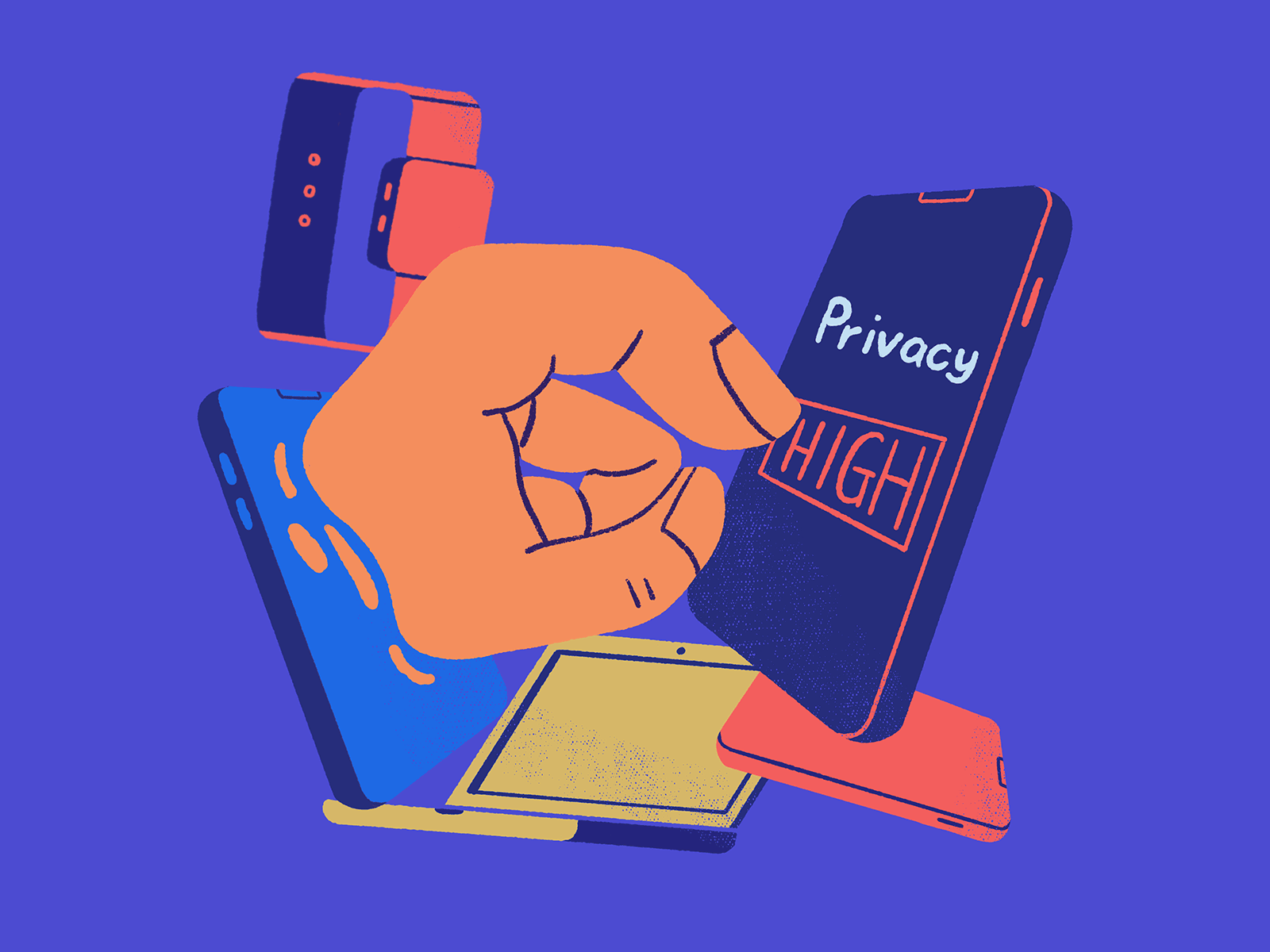Why SaaS is Benefitial for Small and Medium-sized Businesses?
Published: April 20, 2023
11 min read
In this article, you'll learn:
1
🛠 What SaaS is and how it Works?
2
💎 The Benefits of SaaS for Small and Medium-sized Businesses
3
💰 How SaaS can Reduce IT Costs for Small and Medium-sized Businesses
4
🤝 Ways SaaS Providers Can Enhance Collaboration Among Employees, Clients, and Partners
5
👓 Data Security in Case of SaaS Solutions
6
🎯 What are the most Popular SaaS Solutions we all Know?
7
📕 Takeaways
In the 21st century, we are used to the fact that technology is developing rapidly. A couple of decades ago, we only got acquainted with phones, portable media, and thin computer monitors. And now we can already create unique mobile and web applications.
What are we getting at? It’s the opportunity to keep abreast of all the news of technological progress that plays an important role in the success of small and medium-sized businesses (SMBs).
And it's no wonder why — SaaS offers a range of benefits, from cost savings to efficiency gains, that can help small business owners stay competitive in today's fast-paced business world.
But what is SaaS and how does it work? And why exactly will it help your business? In this article, we will help you understand all SaaS benefits for SMBs.
🛠 What SaaS is and how it Works?
Software-as-a-Service (SaaS) is one of the most popular technological innovations that has revolutionized how small and medium businesses operate. The SaaS market has transformed the way companies operate by providing access to cloud-based software applications. This has offered a range of benefits that can help them succeed in an increasingly competitive marketplace.
According to a recent report by the SMB Group, more and more companies will continue to prioritize using SaaS. The report showed that more than 70% of SMBs are most likely to use some form of cloud solution in their businesses.
We're sure you've heard the phrase "software-as-a-service" or SaaS a lot. This term has long been used in the world of technology. Let's see what it is.
Software-as-a-Service or SaaS is a software delivery method that allows end users to access and use applications remotely through their internet browsers. SaaS provider hosts and maintains the hardware that runs these applications.
Imagine that you have a great business idea, but you don't have any resources to bring it to life (just enough time, money, or a huge team). This is where SaaS comes to the rescue.

Great infographic about what SaaS is. (image by SaaSAcademy)
How does it work? Instead of buying and installing software on their computer or server, the user accesses the service through a browser or API. At the same time, the service provider is fully responsible for its support. Simply put, the SaaS business model is when the client works with a ready-made solution online.
Also, the client pays for access and gets the finished instrument as quickly as possible. This means you don't have to worry about maintaining your own hardware or updating software. You only pay for what you need and can easily scale up or down based on your business requirements.
💎 The Benefits of SaaS for Small and Medium-sized Businesses
More and more small and medium businesses are turning to SaaS to make their work easier and to be competitive in today's rapidly changing business environment. Let's go through all the advantages of this solution and why companies choose it so often?
Improved accessibility | You can get access to the necessary tools from anywhere where there’s access to the Internet since everything is stored on cloud servers. |
Cost reduction | Companies often spend a lot of money on expensive hardware and software licenses. And SaaS only requires an Internet connection and a subscription. Thus, costs can be reduced. |
Reduced workload | No more worrying about software updates or hardware maintenance. |
Security and data management | All your information is in secure cloud storage. |
Global collaboration | If your team works remotely, this isn’t a problem for SaaS. It provides access to both a global workforce and cloud-based tools. |
Automatic updates | All software updates are performed automatically. You don’t need to worry about this, load the team and allocate separate resources. |
Scalability and integration with other SaaS products | You don't have to buy servers or software every time you want to implement a new solution. |
User-friendly | SaaS solutions are convenient and easy to use. |
As you can see, SaaS models have many benefits that can help your small or medium business. Let's look at some of these benefits in more detail. Continue reading!
💰 How SaaS can Reduce IT Costs for Small and Medium-sized Businesses
As small and medium enterprises (SMBs) seek to remain competitive in a rapidly evolving business landscape, many are turning to the SaaS model as a cost-effective solution.
SaaS can help small and medium-sized companies cut IT costs in several ways:
1. No upfront costs for hardware or software
Because SaaS apps are hosted on the provider's servers, companies can use them without investing in costly gear or software. The initial cost of buying and installing software is removed, which can be substantial for small and medium-sized organizations.
2. Reduce ongoing IT costs
Regular maintenance and support expenses once the software is installed and operational are often covered by the subscription fee. Businesses can avoid hiring their own IT employees and paying for costly continuing support services as a result.
Small and medium-sized businesses can now invest their important resources in other areas of their organization. It’s possible because the supplier handles all required maintenance and support.
3. Pay only for what you need
SaaS allows small and medium businesses to pay only for the software and services they need. As a result, firms can expand or contract without incurring new expenses. Small and medium-sized businesses with cyclical or fluctuating needs may find this to be very helpful.
4. Improved Security
SaaS providers frequently use advanced security methods to safeguard the information of their clients. For small and medium-sized firms that don’t have the resources to put their own robust security measures in place, this can be particularly crucial.
Businesses can benefit from the vendor's infrastructure and security know-how by using a SaaS solution, which lowers the risk of data breaches and other security concerns.
5. Automatic software updates
The upkeep of their software with the most recent security fixes and features is the responsibility of SaaS providers. This relieves SMBs of the time-consuming and expensive task of manually updating their software. Updates are automatic and part of the subscription charge in SaaS.
To sum up, SaaS provides small and medium-sized enterprises with an affordable way to obtain the software and services they require to remain competitive.
SaaS can help to focus on core businesses while saving money on IT expenses by:
- removing the need for upfront hardware and software costs
- lowering ongoing IT costs
- letting businesses pay only for what they need
- offering enhanced security measures
- providing automatic software updates.
If you have any questions about Software as a Service, we'll be happy to answer them!
Contact Us
🤝 Ways SaaS Providers Can Enhance Collaboration Among Employees, Clients, and Partners
Real-time collaboration allows employees or teams to work on a single digital platform, no matter where they are. Various companies increasingly choose this way of working because it’s convenient and doesn’t require special costs.
Among the features and main advantages of this way of interaction between employees is the ability to transfer data and synchronize it in real time. SaaS solutions minimize the cases of working on outdated or incomplete information.
It is possible because all interested parties have access and see the actual changes. Another feature is the tracking of all versions/changes in the work on a particular project.
SaaS can improve the teamwork of your employees, and increase the efficiency and speed of project completion. For example, instead of communicating with a client via email, this could be replaced by instant messaging built into collaboration software.

Remote work became popular with the onset of the pandemic and this trend is still maintained thanks to SaaS solutions. (image by Anastasia Foxelle)
Real-time work helps to reduce the cost of renting office space, special equipment, and even transportation costs.
We believe that SaaS is an indispensable tool for today's teams that want to collaborate more successfully and efficiently. And Stormotion experienced real-time collaboration too!
Our entire team is in a Slack space, where we solve all the important issues of work. In our work, we use GoogleDocs, GoogleSheets, and other SaaS solutions that have allowed us to assemble a huge team from all over the world!
👓 Data Security in Case of SaaS Solutions
Since more and more companies are moving to SaaS solutions, it’s logical to ask how safe is this for personal information. And what security measures does SaaS provide?
One way to make sure that SaaS protects sensitive information is to verify that security and privacy standards are being met through compliance certifications.

As technology continues to advance, data security standards are becoming more important than ever. (image by Data Privacy Day)
Here we have compiled the generic certificates for SaaS apps for you:
1. SOC 2
Service Organization Control was developed by the American Institute of Certified Public Accountants (AICPA). For SaaS companies, a successful SOC report is evidence that the application actually follows the security measures it should follow and that these measures are effective in protecting sensitive information.
2. ISO/IEC 27001
An international data management standard that organizes security measures by establishing an Information Security Management System (ISMS). The benefits of ISO/IEC 27001 certification include a strong safety management system.
ISO also has other standards, such as ISO 27018 and ISO 27701, that are privacy related and overlap with the GDPR (we'll get to that later).
3. HIPAA (Health Insurance Portability and Accountability Act)
Sets standards for protecting sensitive patient health information. To safeguard patient privacy, SaaS suppliers handling electronic protected health information (ePHI) must adhere to HIPAA regulations.
4. PCI DSS (Payment Card Industry Data Security Standard)
To protect the security of cardholder data, SaaS providers that handle credit card information must adhere to these requirements.
5. FISMA (Federal Information Security Management Act)
This is for information security for federal agencies and contractors that handle federal information. FISMA criteria must be met by SaaS suppliers who work with federal agencies or who handle government information.
6. GDPR (General Data Protection Regulation)
EU establishes requirements for safeguarding personal data. SaaS providers that handle the personal data of** EU residents** must comply with GDPR requirements to ensure the privacy and security of personal data.
In addition to the certificates that any software as a service has, SaaS uses data encryption to prevent third parties from reading the information. Security measures also include two-factor authentication, backups, and constant security monitoring.
But keep in mind that protecting your data is a two-way job. Therefore, after deciding to implement SaaS in your workflow, we advise you to conduct data security training among your employees.
🎯 What are the most Popular SaaS Solutions we all Know?
We already use many SaaS solutions not only at work but also in everyday life. We have compiled a selection of popular SaaS applications and services for you!
- AWS: Data Warehouse.
- Microsoft 365: All applications: Word, Excel, PowerPoint, Outlook work together.
- QuickBooks: Budget Management for SMBs. This service provides the ability to manage accounts, payments, taxes, and various financial transactions and keep records of them.
- HubSpot: Similar to Salesforce and help you manage your marketing and sales.
- Zoom: Video conferencing, distance learning, and online webinars.
- Google Docs: With it, you can create, edit, and share documents. We are sure that everyone knows about it and uses it. This is also a SaaS solution, Dox is available through a browser and doesn’t require installation on a computer.
- Mailchimp: Create and send emails, manage mailing lists, analyze.
- Salesforce: Manage sales, marketing, analytics, and customer service in one place. Salesforce also has an API for integrating with other systems.
- Dropbox: Cloud storage that allows you to transfer files over the Internet, store, and view them. Another cool feature is the ability to integrate with Google Docs, Salesforce, Slack, and others.
- Slack: It’s often used by companies to communicate between teams. The service allows you to exchange messages, files, conduct video conferences. And there’s also the possibility of integrating other SaaS solutions.
📕 Takeaways
Small and medium businesses are often looking for opportunities to grow and compete, and SaaS can help with that. With software as a service, your business can benefit more than traditional ways of working. Let's summarize why SaaS is so important:
- SaaS solutions can help small companies save money in a variety of ways, including lower upfront costs for software and hardware, reduced office rent, and transportation costs.
- SaaS can improve your team's productivity.
- With SaaS solutions, you and your employees can always manage up-to-date information.
- SaaS solutions are safe in terms of the confidentiality of your data because they undergo many certified checks.
Was it helpful?
Read also

Stormotion's ChatGPT Journey

Top 5 Best Practices for Integrating ChatGPT in Your App

How to Build SaaS App Like Spotify
Our clients say
![Stormotion client Pietro Saccomani, Founder from [object Object]](/static/40e913b6c17071a400d1a1c693a17319/b0e74/pietro.png)
They make the whole business work for us, and their improvements are fundamental to our operations. They’re reliable, honest, and willing to try new things that will help us. We appreciate how flexible and easygoing they are.
Pietro Saccomani, Founder
MobiLoud
